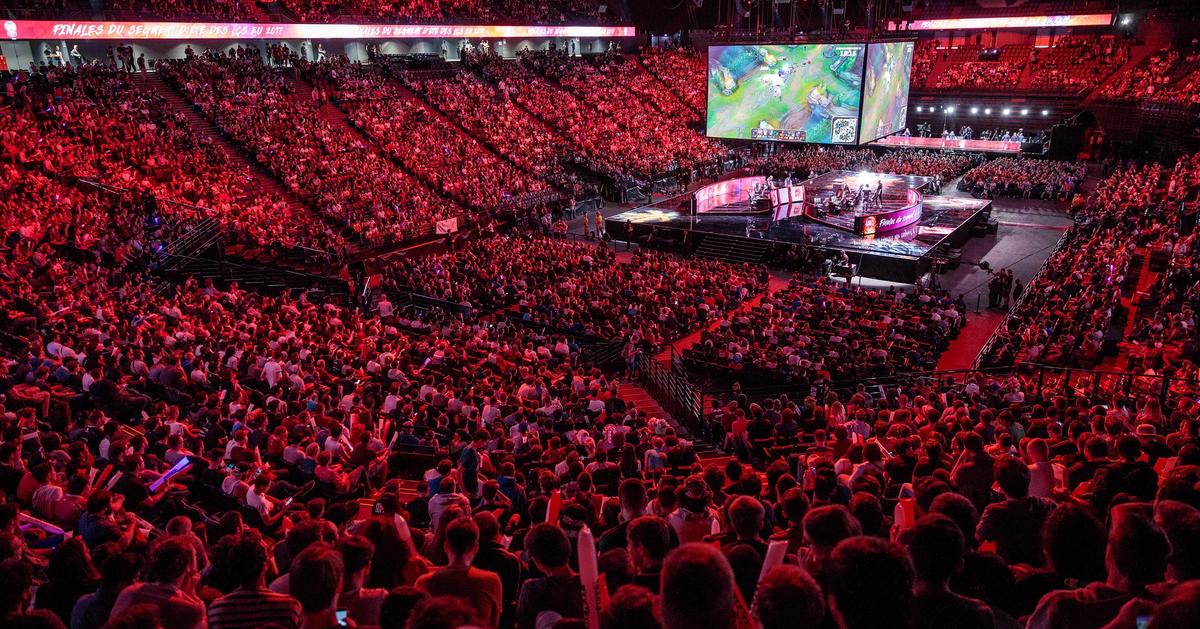EU LCS franchising has had many bumps along the way, but we've finally reached the 10 teams that will make up the league in 2019. This includes five teams that were already a part of the league in 2018, and five new arrivals.
New (and not so new) blood
The EU LCS will be welcoming Astralis, Movistar Riders, North, Rogue, and the returning SK Gaming in 2019 as part of its franchising.
Astralis is no stranger to esports, and is an org that Counter Strike: Global Offensive fans will quickly recognize. Much like other orgs that have forayed into non-League of Legends esports, Astralis offers an already solid fanbase, and through its partners and parent company, it's no secret how this group managed to secure its franchising spot. Astralis has all the foundation to become a feared EU LCS name.
Movistar Riders might not be a name everyone recognizes at first glance, but it has an impressive presence across many esports. That includes an already formed League of Legends resume. The Spanish organization fields rosters for CS:GO, FIFA, Hearthstone, Call of Duty, and Clash Royale among others, but most important is that it's already built some experience on Summoner's Rift. The organization has competed since 2017 in the LVP (a spanish league,) and has proven its mettle. It's also competed in ESL masters events in Spain. The domestic team will be bringing its play to a bigger stage come 2019, and it looks more than ready to make a splash.
North is yet another org that Counter Strike fans may know well. The Denmark-based group formed in early 2017, and are only just taking its first steps outside of the Counter Strike world. That doesn't mean they aren't fit for the tranisition. This org is backed by groups anywhere from extremely successful football clubs to media companies, including sponsorship from SteelSeries and adidas. All of this combined formed quite a successful resume, earning their spot in the EU LCS franchising.
Rogue is another name that has its roots scattered across many different esports already, and now we can add League of Legends to that list. The org fields rosters in CSGO, Fortnite, H1Z1, and FIFA among others. The Las Vegas-based group have some interesting background partnered with organizations like ReKTGlobal along with the surprising musician Steve Aoki. It's heading all the way to the European region to make its name in League of Legends with an infrastructure that's already doing the same elsewhere.
SK Gaming are probably the single most recognizable name on the list of newcomers to the EU LCS. With history going all the way back to 2010 in League of Legends, and formerly featuring current G2 owner ocelote as a star player, SK Gaming return to the EU LCS to add on to their list of historic achievements in League of Legends. The German-based org brings the most long-standing history of any organization in the EU LCS including returning teams, and not just in League of Legends, beginning in esports all the way back in 1997. It's one of the most historic organizations in Counter Strike, and currently fields rosters in emerging esports like Paladins, and Clash Royale among old favorites like FIFA, Madden, and Hearthstone. In League of Legends the team has posted an incredible number of results, dating back to its 2nd place finish at the WCG Grand Finals in 2010, and leading all the way up to its last EU LCS showings in 2016, and some other tournaments since.
EU LCS 2019
These five newcomers will join current EU LCS orgs: Fnatic, G2 Esports, Misfits, Schalke 04, and Team Vitality. While these teams might be seen as "the veterans", that doesn't tell the whole story with orgs like SK Gaming returning.
We can expect some intense and interesting rivalries to build from these orgs as we introduce new clashes, things like ocelote's G2 now facing the org he made his name with as a player, SK Gaming, as well as multiple teams coming from the same places, and one new org that is even based in Las Vegas. We will also possibly see rivalries from other esports spill over into the new EU LCS.
The qualifying teams were picked across a variety of qualifiers, like business acumen, financial backing, fanbase, and esports presence. This led to these 10 making the cut from a long list of applicants, including orgs that will now be cut from the EU LCS.
The region that at first stood by the relegation system will now take its first steps into uncharted territory, mirroring the NA LCS which did so in 2018.
Explore new topics and discover content that's right for you!
League Of Legends



